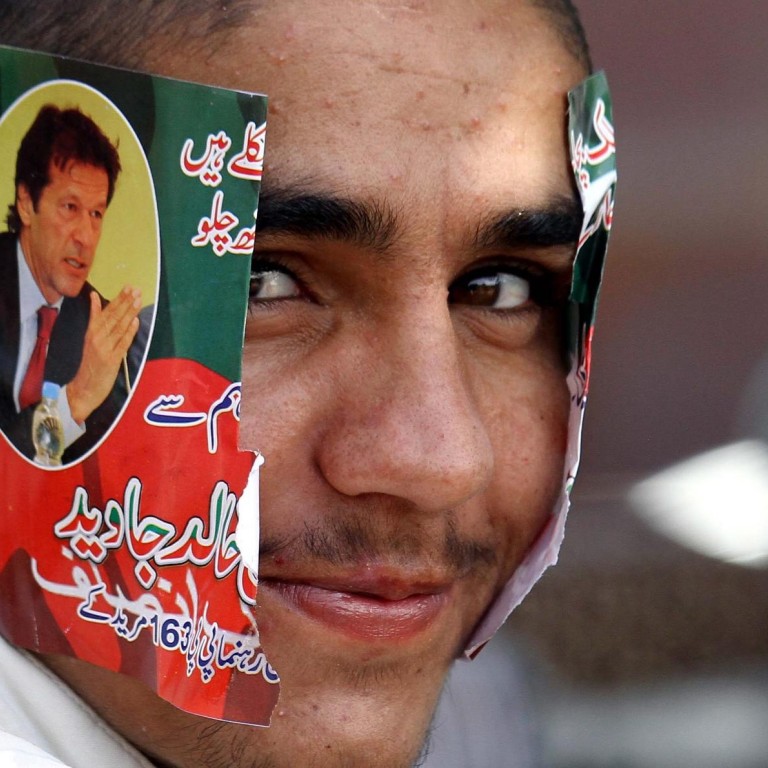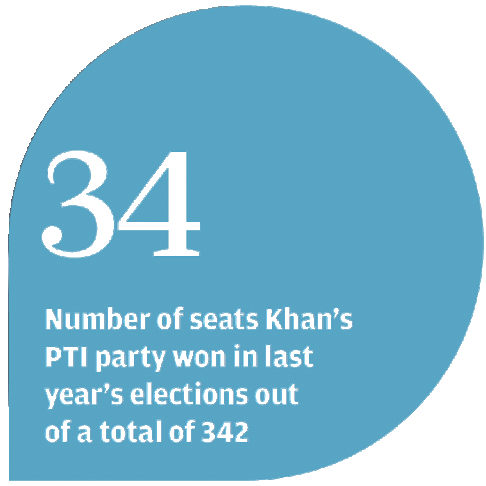
Imran Khan risks overplaying his hand in Pakistan power game
Cricketer-turned-politician would need military to take on Sharif: analysts
Cricket hero Imran Khan rode a wave of discontent to finally break through as a serious player in Pakistani politics at last year's election. Now he is aiming even higher, leading thousands on a march to the capital in a bid to unseat the prime minister.

Thousands showed up for his rally on Saturday, but some supporters grumbled they had slept out in the rain while Khan relaxed in his nearby mansion.
"The path he's chosen is one of protest," said Samina Ahmed, South Asia director of the Brussels-based International Crisis Group think tank. "Now the question is: does he have a strategy beyond the protest?"
Even if the protest movement fizzles out, however, Sharif will have been left weakened and less likely to challenge the country's powerful military on security and foreign policy, which Pakistan's generals have long considered to be their domain.
There is no doubt that the military brass dislike Sharif, who stormed back to power for a third time last year after his party won a clear majority in parliament.
But one political analyst said it was unlikely Khan was encouraged by the army to challenge Sharif, and much more likely that Khan had decided to pounce because the prime minister's sparring with the generals had left him vulnerable.
"If the relationship with the military had not gone out of kilter, then Imran would not have seized this opportunity," said the analyst, who declined to be named due to the sensitivity of the issue. "He saw Sharif was on shaky ground.
"When I asked him, 'What's your exit strategy?', he said: 'I play to win'," said the analyst. "It's a sportsman's calculus."
The charismatic 61-year-old Khan has long been lauded for his sporting prowess and his charitable work. An Oxford graduate, Khan captained his country to its only cricket World Cup victory in 1992. As a philanthropist, he built a cancer hospital and aided victims of a flood disaster in 2010.
He first dabbled in politics in the mid-1990s, but until last year his Pakistan Tehreek-e-Insaaf (PTI) party had only ever won one parliamentary seat - his own.
But voters flocked to Khan's banner of reform. He denounced the corruption and tax evasion of mainstream political parties and blasted Washington for its deadly drone strikes.
The 2013 polls made Khan's party the third-largest bloc in parliament, giving him control of 34 seats out of the 342.
In the past, the military may have seen Khan as a useful figure to ensure it remains the real centre of power.
But the military also see him as a nuisance for seeking an end to the fight against the Taliban and a negotiated peace. He has sometimes been ridiculed as "Taliban Khan" for his hostility towards US drone strikes.
Now, as Khan's supporters camp out in Islamabad, some in his own provincial capital of Peshawar are becoming impatient.
"We voted for Imran Khan's party in our province but they have engaged themselves in other issues," said furniture maker Mohammad Ikram.
"They should solve the problems of the people of this province first and then criticise the federal government."

